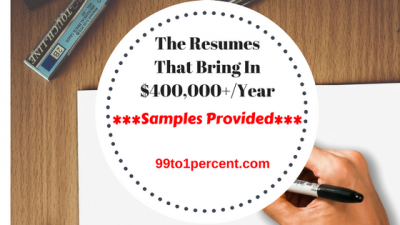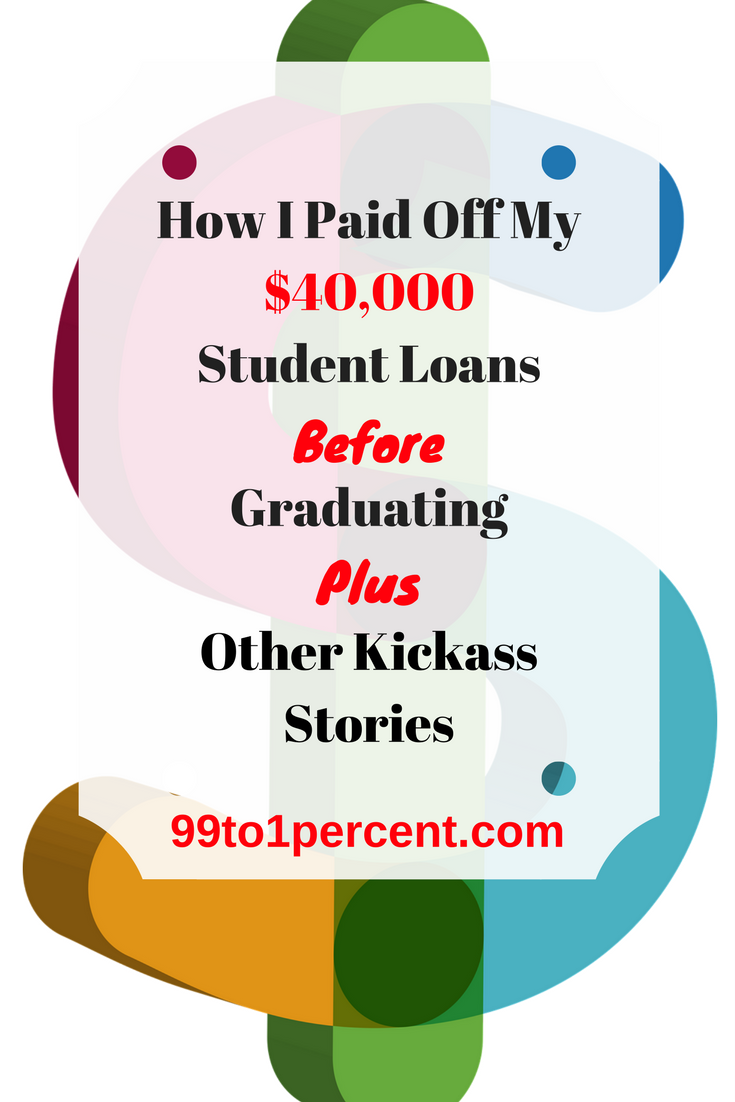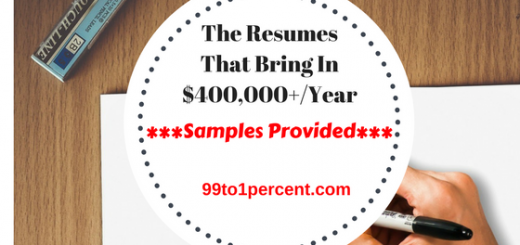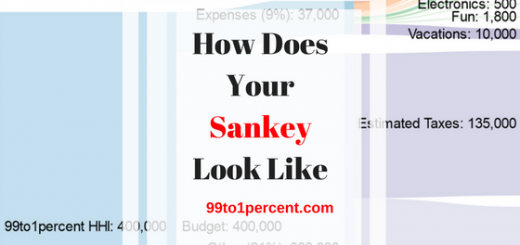
How I Paid Off My $40K Student Loans Before Graduating
How I Paid Off My $40,000 Student Loans Before Graduating Plus Other Kickass Stories
Hello readers! Today, I’m going to talk about how I paid off my $40,000 student loans before graduating. We will also bring you other kickass student loans payoff stories from other money nerds.
Even if you have already paid off your student loans, you can still benefit from this post since we all know a few people such as a cousin, niece, nephew, friend, or maybe even our own kids who are going to or will go to college.
Without further ado, here’s how I did it
Choosing a field and a school wisely
The most important thing you have to do is to choose a field and the school very carefully. For example, you don’t want to go to an expensive private school to the tune of $200,000 for a career that would pay you an average of $25,000/year.
Find something that you are passionate about but that also pays well and find an affordable college to attend.
My passion has always been numbers, money, math…as far back as I can remember. Thus, I choose a career in Accounting and Finance.
I chose to go to a good but relatively cheap local community college and later on transferred to a good local business university also relatively cheap compared to other universities around.
Taking advantage of the co-op program
I took advantage of the co-op program in order to gain some experience and contacts. Most of the time, having degrees doesn’t help if you don’t have the experience to go with it.
The money I made from the co-op program did not actually go into paying for my studies. I gave most of it to my mom, to help her save for a down payment on her first house in Canada. I would only keep $150 for transport and give her the rest.
Finding part-time work
I also found part-time evening and weekend work in order to pay for my other living expenses such as rent, food, clothes…
Therefore, I took out student loans to pay for tuition and books only.
Limiting student loans to 1-2 years of annual salary
I researched and conservatively estimated my salary for the 2 years after graduation. My conservative estimate was that I would be able to get a salary between $35K-$45K/year, thus I made sure to limit my student loans to $40,000 only.
Most of my classmates, graduated with $60K, $80K, student loans.
Taking summer, evening and weekend classes
I took summer classes, and sometimes evening and weekend classes so that I could graduate faster and also allow me to have a lighter load during my last year as I was planning to start looking for a job one year before graduation, which brings me to my next point.
Starting looking for a job 1 year before graduation
I started looking for a job 1 year before graduation. I wanted to get a head start. It’s less pressure if you have a year to find a job than if you have a week or a month to do so.
But most importantly, I wanted to start paying off the student loans. I had already reached the $40,000 maximum student loan limit I had set for myself.
Fortunately, since I had the co-op experience and other part-time work experience, I was able to get a job right away, an entry-level accounting job that paid only $40,000. I could have gotten more, but I made a very costly rookie mistake of not negotiating that salary.
Making sure the job pays for overtime
Even though I made the mistake of not negotiating for my salary, at least I made sure they offered paid overtime.
Entry-level jobs don’t pay a lot but most of them do offer paid overtime. It’s important to make sure of that during the interview process. If you are not comfortable asking, you can also use tools such as Glassdoor and Indeed to check the reviews and benefits of the company.
Even though I was still attending school full-time during evening and weekends, I did a lot of overtime, and brought home about $70,000.
I volunteered to take on messy tasks and projects that no one else wanted to take on, thus a steady number of overtime hours was guaranteed. I worked long hours and won the employee of the year out of 3,000 employees.
Because of that, I was able to pay off my $40,000 student loans within a year just before graduation.
Continue living like a student until student loans are paid off
Even though I was making $70,000/year plus some tax prep side hustle income, I continued to live like a student until the student loans were paid off. I continued to live in the same cheap apartment and neighborhood.
I set up an online account where I could monitor the balances and payments, and watched those student loans like a hawk. Every single day.
Every time I made extra money, I sent the payment there. I was sending about $4,000/month and was able to pay it all off in 10 months, a couple of months before graduation.
It was an overwhelming feeling; finally getting rid of that debt!
However, I didn’t stop there. I used the momentum to continue working hard and saving. During the following year, I was able to save for down payment on a condo, and was able to move to a nicer, safer neighborhood.
I also continued the momentum and saved for $100,000 emergency fund. Note that a lot of it, is in short term investments, and not just sitting around in a savings account collecting $0 interests, or laying under the mattress collecting dust 😊.
It’s with this emergency fund, that we have been able to pursue so many business opportunities. This emergency fund has actually made us way more money than all our other investments combined.
Having an emergency fund doesn’t mean you can’t use it to pursue some opportunities. We just make sure we top it up again. We will probably write a post about it sometime in the future.
May this be your last debt (except for a mortgage or income producing asset)
So what do you do once you have paid off your student loans? Do you go ahead and buy a car or a boat on credit? NO
You make sure you don’t incur any other debt except for a mortgage or for an income producing asset /business.
You should live below your means, ideally on less than 50% of your income, and save/invest the rest.
Mr99to1percent’s story:
I chose to go to school in Texas because college tuition is relatively affordable over there.
It was especially important to choose something affordable because my family paid for only 1 semester, and I was on my own for the rest.
I was able to manage by packing all my classes into 2 days only, and the rest of the of the days were spent working odd jobs such as flipping burgers, serving coffee and valet parking.
It also helped that I was living with 5 other students who also worked in fast-food industry, thus rent and food were cheap. I was then able to graduate debt-free!
Other kickass student loans payoff stories
We also asked other money nerds over at the RockstarFinance to chime in and tell us their kickass student loans payoff stories. Here’s what they had to say:
- Slow-Dad: “While I still mostly enjoyed the student experience, I didn’t spend as much time chasing pretty girls, majoring in pub studies, and playing sports in the sunshine.
Instead I worked two or three student jobs while studying full time, so I could graduate debt free. That meant instead of paying off student loans, I could instead start purchasing investment properties right out of university, which ultimately allowed me to be financially independent by the age of 40.
As it turned out I only worked in my chosen field of study for a year before pursuing other opportunities, so while everything ended up working out pretty well I am glad I wasn’t heavily indebted to an education I didn’t end up making a lot of use of.”
- OurFinancialPath: “We both worked part-time jobs, worked during the summers, and saved a lot to pay for our school expenses.
The first year we started working full-time we saved up enough for a down payment on our first home AND repaid all our debts.”
- TheFrugalGene: “It took me 8 months to pay off roughly $20,000 in student loan debt. I was undecided between pushing the debt into graduate school to worry about later or if I should pay it all back before applying to graduate school.
My discomfort with holding any sort of debt made me go with option #2 which is to kill off the balance sheet ASAP. I bunked with my parents through it because San Francisco was not an easy place for a penniless kid rent wise.
The feeling of seeing my Great Lakes debt balance (the loan servicer) drop to zero was euphoric. I learned more about the real world in that 8 months than 16 years of school. I learned I wanted to find my own way in the world than staying in that ‘ivory tower’.”
- AtypicalLife: “I graduated with $32,000 in student loan debt. I got married and moved to China on an expat assignment. Marriage came with an extra $20,000 in student loans (totally worth it, you just need to talk about your finances going in), but the move to China came with an almost 50% raise and multiple bonuses.
We moved to China with $32,000 remaining on the student loan balance and paid it off in 7 months. I wasn’t looking for an expat assignment for the money, but the opportunity presented itself and we couldn’t say no.
Moving to China was a new start for us and we really wanted to be debt-free. For 2 years now, we have been debt-free and building our net worth up in preparation for early retirement 6.5 years after graduating from university.”
- MrsKiwiAndKeweenaw: “While we had some support from our parents and scholarships to pay for college we graduated with almost $50,000 in student loan debt at the height of the great recession. We both decided to pursue graduate school, which came with free tuition and a research assistant-ship (roughly $20,000/year each).
Our willingness to live frugally helped us save 50% of our income as graduate students! To achieve that great savings rate we lived next door to a crazy fraternity in year one and found free housing for half of year two.
During graduate school we paid off Mr. Kiwi’s loans and saved up a 20% down payment for our home. We were house hunting during the last months of graduate school and bought our home within three months of us graduating and landing full time jobs. We finished paying off my loans after the mortgage closed! We are now saving towards financial independence!”
- DadsDollarsDebts: “Does using my insurance check from my house burning down to pay off $170k overnight instead of over 10 years count?
The gist is there is insurance money allocated for rebuilding and insurance money allocated for possessions loss.
I will be taking money for possessions lost (we were well insured) and allocate a large chunk of it to pay off my student debt. Then when we decide to buy things we can use my regular income to do that. Plus we likely won’t replace everything lost in the fire. Maybe 40%.”
There you have it guys. Kickass student loans payoff stories that range from:
- Graduating without any student loans
- Paying off the student loans before graduating
- Paying them off within a couple years
- Turning lemons into lemonade when your house burns down, and using the insurance payment to pay off your student loans.
How about you guys? Care to share your student debt story? And what advice would you give a young college student?
Thanks for reading. Please feel free to comment, share and subscribe! We love ya and wanna get to know ya!
Do you want an easier way to manage/track your finances/investments? The Personal Capital app can help. Do you want to start blogging? Bluehost can get you started. Make sure to also check out other resources that we recommend such as books that have helped us get where we are.
Do you want to learn more about us? If so, you can also read these posts:
- About us
- How We Increased Our Annual Income From $0 to $160K to $400K+
- How we live on 15% of our income
- Joining the Million Dollar Club/Challenge and So Can You
- How To Pay Off A Mortgage In 5 Years
- Our Biggest Money Fight and 9 Lessons Learned
- Our 6 Financial Mistakes and 15 Lessons Learned
- How I Paid Off My $40,000 Student Loans Before Graduating
- The resumes that bring in $400,000+/year (Samples Provided)
You may also like...
26 responses
-
[…] How I Paid Off My $40,000 Student Loans Before Graduating […]
-
[…] How I Paid Off My $40,000 Student Loans Before Graduating […]









Yes! To looking for a job a year before graduation! It gives you time to find one that will be a good fit and put you in a better negotiation seat! (But you’ve totally made up for not negotiating Ms99to1 by now!)
Awesome work paying off your debt so quickly!
Thanks for sharing your kickass story too. Impressive how you guys were able to pay off $50K and buy a place at the same time in a such short time!
One tactic that helped me with this was begging my parents for money. 🙂
I think it helped to go to an in-state public university as well. And the part time job really helped, as did working all summer long.
hahaha, you gotta do what you gotta do, even if it includes begging parents for money! I’m sure you picked up so good negotiation skills that helped you throughout your career.
Great post and items to consider.
We’d go pretty far to pay off any debt. But we have gone – and will continue to go – far to not get into any debt in the first place. Admittedly, no one knows why life may bring (health matters, loss of income, etc.), but you can’t worry about things you can’t control. We can at least prepare to the best of our ability. A few examples:
– an emergency fund (your point around this is very important)
– insurance
– living within your means
In a proactive example, Mrs. BD was deciding where to go to Graduate school while we lived in New York City. She could have gone to NYU – a great school no doubt – or one of the state schools in the city. She opted for the latter because it was nearly 1/5 the cost of NYU. We would have gone into debt to finance the Masters, but we were able to avoid debt by going with the other school. No one at any of her employers since then has cared that she opted for one vs. the other. And it saved us probably $60,000.
That’s some impressive savings right there! Yes, at the end of the day, it’s the experience that matters the most.
You’re right. Community college is the greatest thing in education since sliced bread. If you keep your grades up in community college, it is pretty easy to transfer to a larger school if desired. Plus by staying local for your first 2 years, you save on room and board which is 2 to 3 times the cost of tuition.
Also, in the US, lots of state public schools are now providing free tuition to students who meet the grade requirements, paid for by the state lotteries. I know lots of kids going to great schools in FL, GA, TN with free tuition. Sweet deal!
And to OurFinancialPath, wow, tuition in QC at $3K per year? That’s awesome. In Ontario, it’s $8K across the board. I’m trying to get my youngest to look at McGill, but it’s expensive going out of province. It’s about the same as going out-of-state in the US. Plus she really wants to go back home, to the US, for college.
I hear QC universities also offer a lot of scholarships. Maybe look into it, it might be worth it.
Thanks for including our story, you had a great path yourself.
Thanks for sharing your story with us Xyz!
Thanks for the mention and nice story. You were way more disciplined then I was as a student. Kudos to you! Look forward to reading more in the future.
Hey DDD,
You are also an inspiration. The way you have been able to keep it positive and turn lemons into lemonade, is a true inspiration!
Great post, Ms 99to1percent!
I strongly believe that choosing your field wisely is one of the most important things you can do for your wealth. Your salary (combined with strong savings, of course) is going to have a significant impact on your net worth every single month of your life post-graduation.
Yes, choosing the right field is very important. You can’t save/invest what you don’t make.
Love the hustle. Most of us were not self-aware enough at that age to focus on our finances. There is a reason you two are part of the 1% today!
It comes naturally. Started hustling at 3 years old (for candy lol )
Good work, impressive to be that focused early!
Thanks buddy!
Ms 99to1percent,
You did an fantastic job! Paying of the $40K student loan before graduating is amazing. It needs discipline and hard work. Selecting the major and school is important, too. Looking for a job one year ahead is a great idea. You made it all. Very good advice, thank you.
Thanks Helen, glad you enjoyed the article.
Wow! You had an awesome mentality and commitment in paying off that $40k. I especially like when you mention how you maintained a similar cost of living despite your increase in income. Definitely something a LOT of people struggle with. Thanks for the post!
Yes, short term pain, for long term gain
The best advice is to keep living like a student and prevent lifestyle inflation. That’s the real ticket to getting out of your debt.
I agree 100%. Living like a student for a couple more years, won’t kill you 🙂